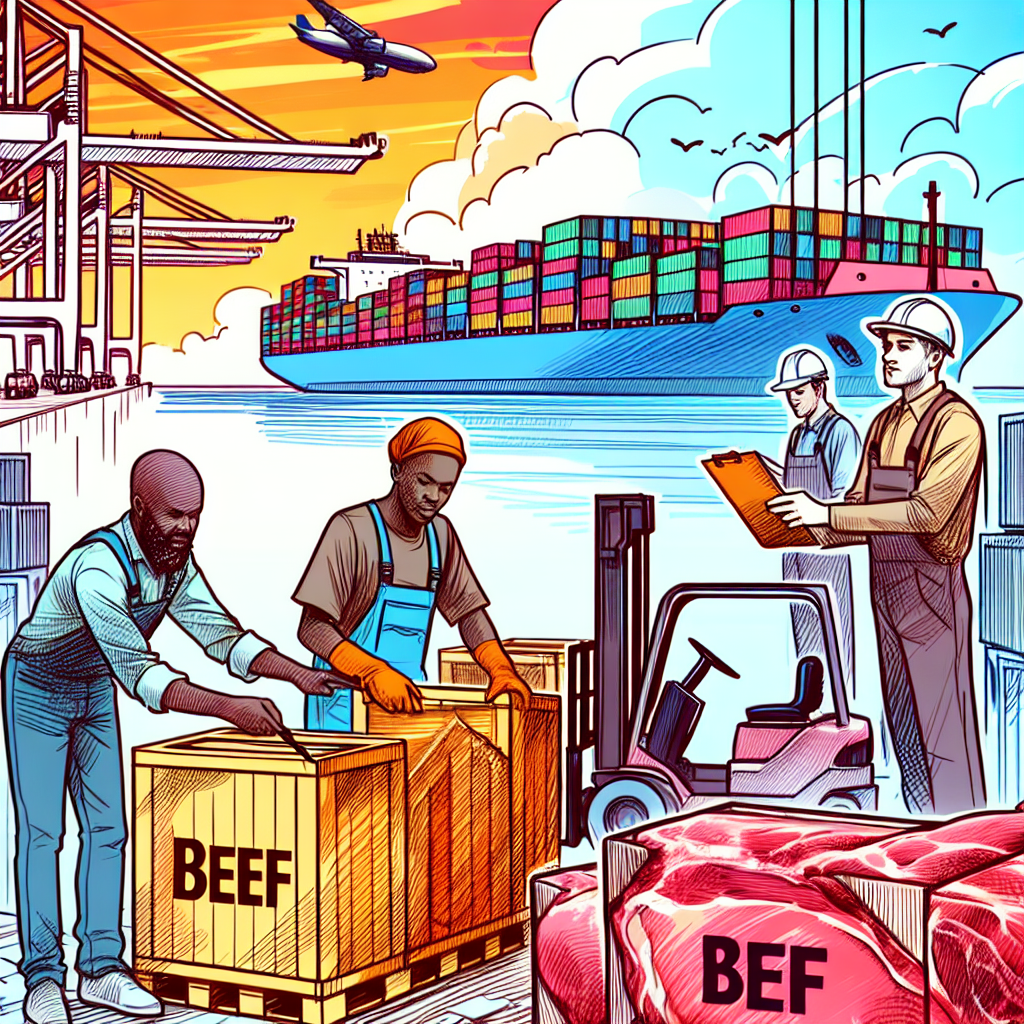KZN Beef Industry Revival: MECs Eye Growth, Jobs and Rural Development
Rodgers underlined the economic significance of beef farming in KwaZulu-Natal, noting that the industry contributes between 5–6% of the province’s gross domestic product (GDP).

- Country:
- South Africa
KwaZulu-Natal’s beef industry is set for a major revitalisation, with the provincial government pledging stronger collaboration with farmers, academics, and investors to unlock the sector’s untapped potential.
MEC for Finance Francois Rodgers has welcomed a high-level engagement with stakeholders, convened alongside MEC for Agriculture and Rural Development Thembeni kaMadlopha-Mthethwa, to craft a roadmap for growth and resilience in the beef sector.
The consultative session, which brought together private sector specialists and academic experts from the University of KwaZulu-Natal’s School of Agriculture, placed strong emphasis on boosting production, creating sustainable rural jobs, and attracting investment into the province’s agricultural economy.
Beef Industry as a Key Economic Driver
Rodgers underlined the economic significance of beef farming in KwaZulu-Natal, noting that the industry contributes between 5–6% of the province’s gross domestic product (GDP). With nearly half of all beef production taking place in rural areas, the sector sustains thousands of livelihoods.
“At least 45% of all beef in the province is located in rural areas and sustains thousands of livelihoods. This is a key industry that requires significant investment in line with our quest to develop an ethical and capable state,” Rodgers said.
Both MECs acknowledged that the beef sector, if properly harnessed, has the potential to not only expand KwaZulu-Natal’s economic base but also drive meaningful rural transformation.
Challenges Confronting the Sector
Despite its potential, the beef industry in the province faces structural challenges. Stakeholders highlighted:
-
Disease management, especially the recurring threat of foot-and-mouth disease (FMD), which has previously disrupted trade and farmer incomes.
-
Rising production costs, driven by fuel prices, feed costs, and veterinary expenses, which place strain on both commercial and emerging farmers.
-
Access to finance, particularly for small-scale and emerging farmers who struggle to secure loans and investment to scale operations.
Rodgers and kaMadlopha-Mthethwa emphasised that addressing these barriers is central to ensuring the sector’s sustainability.
Indaba to Chart the Way Forward
The two MECs announced plans to host a provincial indaba of beef industry stakeholders before year-end, bringing together government, farmers, academia, and industry players to deliberate on practical solutions.
The gathering will focus on:
-
Strengthening rural economic development through agricultural investment.
-
Introducing tighter disease control and biosecurity measures.
-
Creating a framework for job creation and skills development in the beef sector.
-
Exploring opportunities for emerging farmers to integrate into value chains.
Supporting Traditional Institutions
In addition to commercial objectives, the planned indaba will also discuss supporting the AmaZulu Royal House in achieving self-sufficiency through beef production. This move aligns with provincial priorities to preserve cultural institutions while empowering them economically.
Building a Sustainable Future for KZN Agriculture
Officials from the Departments of Finance and Agriculture are already developing a foundational framework to guide the discussions. Detailed plans for the indaba are expected to be shared with stakeholders in the coming weeks.
By leveraging academic expertise, private sector investment, and government support, the province aims to reposition its beef industry as a cornerstone of food security, rural development, and inclusive growth.
KwaZulu-Natal’s renewed focus on beef production underscores the province’s broader agricultural development vision—one that places rural communities at the heart of economic transformation while building resilience against global and local challenges.
ALSO READ
India Prioritizes Agriculture, Celebrates Swaminathan's Legacy
Smart farming takes root: AI enhances efficiency, accuracy, and sustainability in agriculture
Sowing the Seeds of Change: AOL-SSIAST Leads Sustainable Agriculture Revolution
PM Modi, Brazilian President agree to boost cooperation in trade, tech, energy, defence, agriculture and health: PMO.
PM Modi Inaugurates Swaminathan Centenary Conference, Champions Food Security










